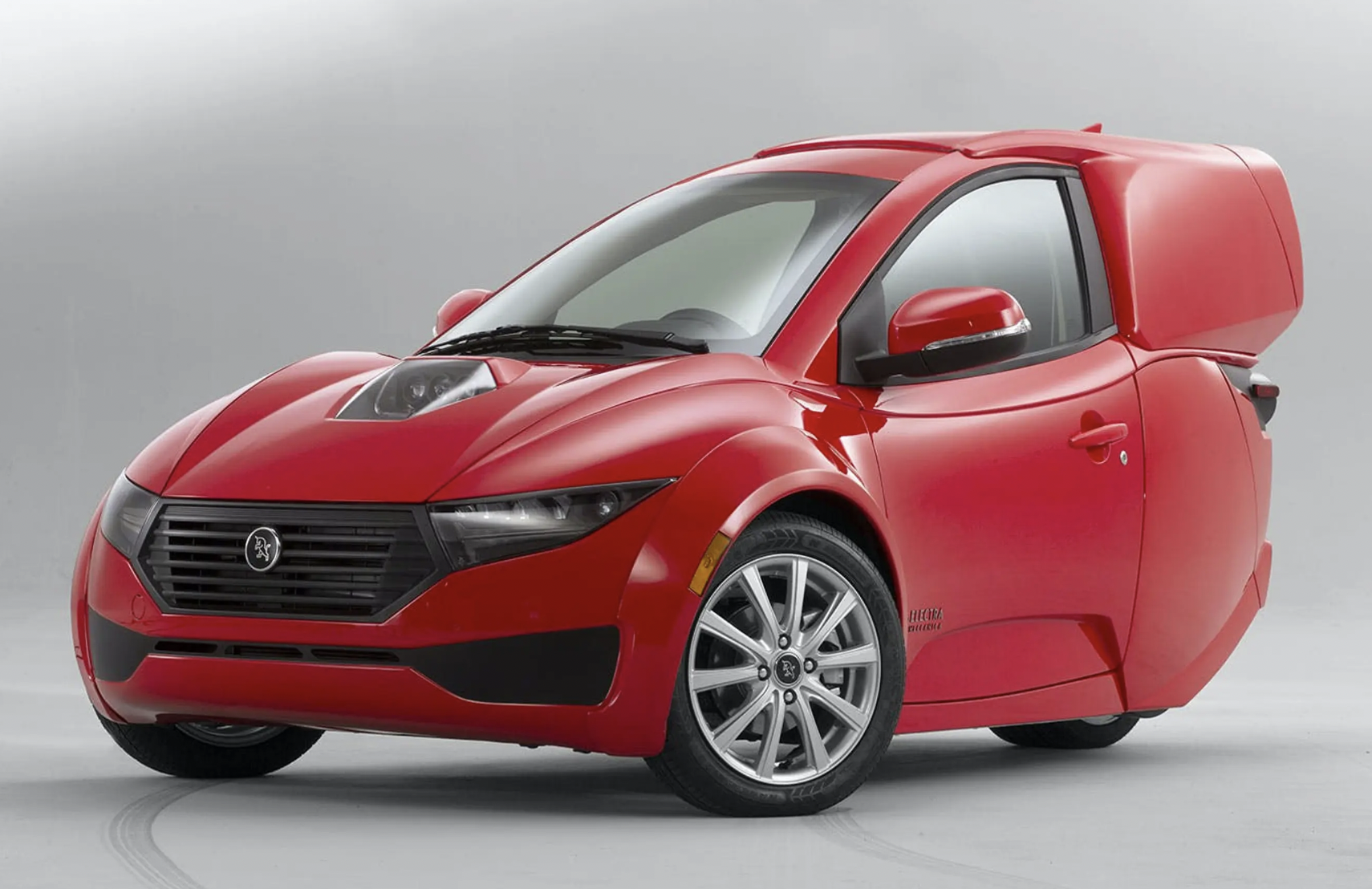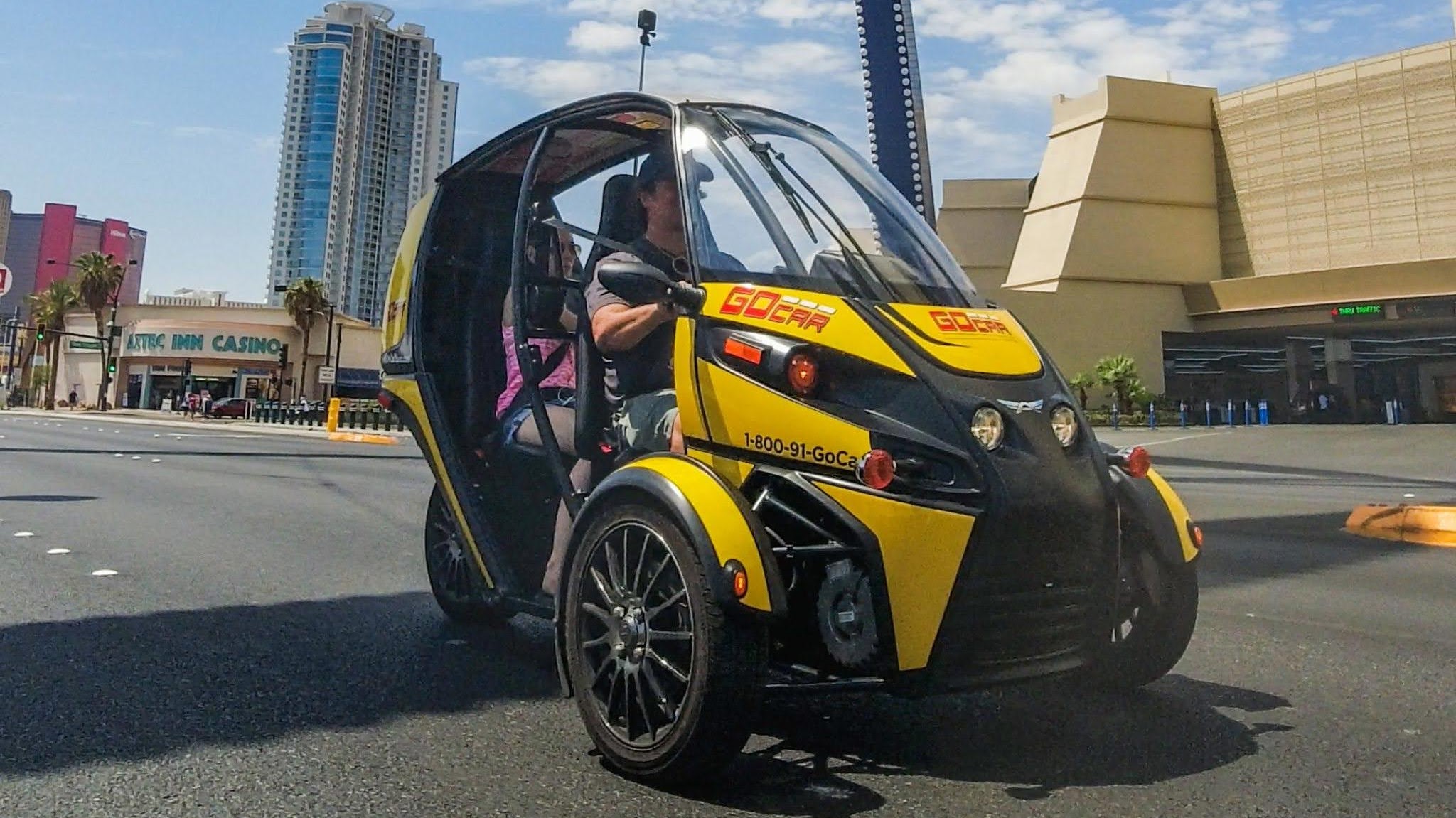ElectraMeccanica, the maker of the tiny three-wheeled Solo electric vehicle, will merge with UK-based truck manufacturer Tevva in a bid to grow their combined market share for electric trucks, the companies said Tuesday.
The merger represents a pivot for ElectraMeccanica, which struggled to produce its small electric vehicle profitably. After a recall in February, ElectraMeccanica was forced to discontinue the Solo vehicle. By focusing on medium- and heavy-duty commercial electric trucks, a fast-growing segment in the global EV market, the company will be able to keep some of its operations alive.
For Tevva, the merger is an opportunity to grow in the UK and Europe, enter the U.S. market and produce more trucks at ElectraMeccanica’s plant in Mesa, Arizona.
The Mesa plant is expected to begin production in 2025 and reach full capacity in 2026. It’ll be able to produce 10,000 units of Tevva’s 7.5T model electric commercial truck, according to a company spokesperson. Tevva recently began delivering the 7.5T to commercial fleet customers, and is currently producing that model in its UK factory at a capacity of 3,500 units.
“Our operations complement one another,” said ElectraMeccanica’s CEO Susan Docherty in a statement. “ElectraMeccanica’s U.S. footprint and Tevva’s experience in the UK and EU; our collective go-to-market and engineering expertise; our respective Mesa, Arizona and Tilbury, United Kingdom facilities; and our balance sheet as well as public listing alongside Tevva’s commercially-ready products and significant customer list.”
Docherty also noted that the electric truck market, unlike the electric three-wheeler market, is eligible for U.S. government incentives like the $1 billion set aside for electrifying heavy-duty trucks and an up to $40,000 rebate per medium-duty commercial vehicle.
ElectraMeccanica’s stock rose 19% on the news. The company will continue trading publicly as SOLO until the closing of the deal, which is expected to happen in the fourth quarter. If the proposed merger is approved by shareholders, the combined company will begin trading as Tevva, Inc. under the ticker TVVA.
Financials and other details

ElectraMeccanica’s Solo EV. Image Credits: ElectraMeccanica
Once the transaction goes through, ElectraMeccanica shareholders will hold 23.5% of the combined company, with Tevva shareholders taking the remaining $76.5%, according to regulatory filings.
ElectraMeccanica and Tevva expect the merger to bring in about $5 million in run-rate annual cost savings by the end of 2024, and a revenue of $1.3 billion to $1.5 billion by 2028.
The combined company will have a cash balance of $70 million to $80 million, with debt of around $26 million. ElectraMeccanica will also provide a $6 million credit facility to Tevva, which can be drawn in whole or in part until the deal is closed, to be used as working capital.
Docherty will become CEO of the combined company. David Roberts, current director of Tevva, will become executive chairman of the new Tevva, Inc.
The combined company will consist of nine directors, four from ElectraMeccanica and five from Tevva.
The struggle of making three-wheeled EVs

Arcimoto’s FUV (“Fun Utility Vehicle”), another three-wheeled EV. Image Credit: Arcimoto
Docherty initially flagged in December 2022 that ElectraMeccanica was in trouble. The company commissioned its new manufacturing facility in Mesa in an attempt to onshore and continue selling its three-wheeled Solo EV. The business continued to struggle due to an unsustainable cost structure, an unprofitable contract manufacturing agreement with a Chinese company, and an addressable market that was too expensive to capture.
In February, ElectraMeccanica began a recall of every Solo vehicle sold since 2019 due to a loss of propulsion issue while driving. The company later offered to buy back all vehicles sold at full purchase price and issue refunds to reservation holders as sales of the Solo were discontinued.
Docherty in March wrote in a letter to shareholders of ElectraMeccanica’s decision to pivot away from its three-wheeled autocycle. The executive cited challenges in adoption such as the vehicle’s exclusion from government rebates, difficulty for customers to insure the vehicles and trouble with servicing.
At the time, Docherty said ElectraMeccanica would begin work on a four-wheeled EV, called Project E4. Someone familiar with the matter told TechCrunch the company is cancelling Project E4 in light of its recent announcement and pivot from consumer to commercial.
ElectraMeccanica was one of the only companies actually producing three-wheeled electric vehicles, a form factor that many say has the potential to revolutionize transport. Imagine zipping around an urban environment in the tiny EV, easily finding parking and navigating tight city streets. The Solo also had promise in the delivery sector. ElectraMeccanica piloted its vehicles with Pizza Hut last year, but the partnership didn’t extend past the pilot.
Holding down the fort for three-wheeled EVs in the U.S. is Arcimoto, another company that has struggled to stay afloat amid high costs of production and has issued a going concern warning.
Arcimoto dodged bankruptcy in February and brought on its third CEO in April. In May, the company announced its own attempt to branch out beyond three-wheeled EVs: a tiny truck called the MUV (“Modular Utility Vehicle”).
In the second quarter of this year, Arcimoto recorded revenue of $1.8 million on a net loss of $13.2 million. The company had $1.3 million in cash and cash equivalents at the end June.
Arcimoto hasn’t shared its vehicle sales numbers this year, but said in a regulatory filing that it is selling vehicles at below cost. In 2022, the company sold a total of 228 units.















 English (US) ·
English (US) ·